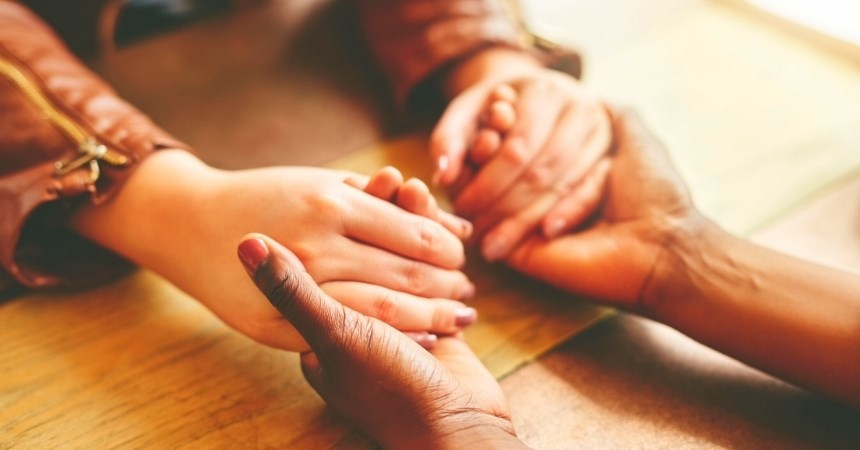Years ago, I was visiting with my co-worker, Brenda, about a mutual friend whose father and sister had both been diagnosed with terminal cancer. I told Brenda I hadn't called our friend because I didn't know what to say and I was afraid I'd make her cry.
Brenda said something like, "That's not a good reason. She needs her friends right now. And, if she cries, that's OK. She needs to know you care."
Brenda was right, and I have never forgotten the important lesson she taught me about showing up. Since that time, I've learned a few things about being there for my friends and family.
1) Don't Worry About Saying or Doing the Right Thing
You'll make mistakes, but that's OK. Showing up—walking into the fire with someone—is the most important part.
Many years ago, my mother was diagnosed with breast cancer, and one of her very best friends disappeared from her life. My mother knew it was because her friend didn't know what to say or how to deal with her own emotions, but it still hurt. Fortunately, she had many other friends to lean on as she made difficult decisions and underwent the treatment. They didn't always say the right thing, but they showed up.
It's better to say, "I don't know what to say," than to say nothing at all.
2) Listen
While it's tempting to be the encourager and try to keep your loved ones positive, they need permission to feel what they feel. If they are afraid, sit with them in the midst of their fear. If they are sad, sit with them in their sadness. If they are angry, let them be angry.

Sometimes, the best thing you can say is, "This sucks. I wish I could take it away."
3) Don't Try to Fix It
Don't give advice without asking if it's okay. We all want to fix things for the people we love, but they have doctors to talk to about their treatment options. It's our job to listen when they want to talk, and to give them the space they need to make their own decisions. If they ask for your advice, by all means, share it. But don't be pushy.
4) Don't Stop Talking to Them About "Real Life"
Not so long ago, I received a letter from a friend whose son had survived a year of brutal cancer treatments and hospitalizations. In addition to thanking me for being there for her during their journey, she made a specific point to thank me for telling her about my life. She said people stopped talking to her about "normal" things and she needed a respite from the cancer. This is different for everyone, so pay attention. If your loved one isn't interested in hearing about your cancer-free life, you'll know.
5) Offer to Help in Tangible Ways
It's easy to say, "Call me if you need anything," but most of us don't like asking for help, so they probably won't call. Instead, offer to make a meal, do laundry, clean house, pick up groceries, or take their child out for ice cream.
Figure out some things you could do and ask if that'd be helpful.
"I'd like to make you dinner. Would that help you out?"
And then be specific.
"Can I drop off a meal tomorrow night? Or is another time better?"
6) Don't Take Offense
If your friend doesn't want your help, accept that too. Needing to be alone to work things out in their own mind doesn't mean they don't value you. Now may just not be the right time. Text them occasionally to let them know you're there and that you care. At some point, they may be ready to accept your help.
7) Take Care of Yourself
While your loved one’s cancer journey isn't about you, it’s important that you take care of yourself also. Make time and space for yourself so you can process things too.
It's hard not to feel overwhelmed and lost at times. It can be even harder when you don't have someone to lean on. If you find that you are struggling, find someone you can talk to about your own fears and emotions. And don’t be ashamed to reach out for help from a professional if needed.
Cancer is a difficult journey for anyone involved. Thankfully, there are many ways that you can be a good friend during this difficult time. I hope these simple pieces of advice help.
Additional Resources:
- How to Support a Friend with Cancer (Podcast Episode)
- Tips for Dealing with a New Medical Diagnosis
- Processing Big Changes
- Tips for Staying Sane During Trying Times (Podcast Episode)


